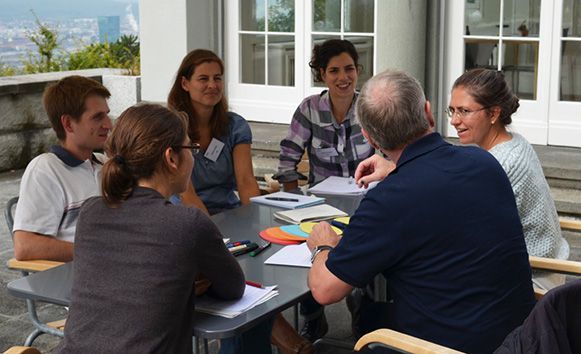A workshop using the most significant change technique

Context
We used the most significant change (MSC) technique on the occasion of a workshop held towards the end of a two years research project in the field of nature conservation. More specifically, migration patterns of both threatened and invasive plant and animal species under environmental change were assessed employing molecular genetic methods. The project had started with a first workshop to define the research questions together with actors from various regional and national authorities as well as environmental consulting agencies, being the primary users of the research results. In between, i.e. during research work, there had been occasional exchange with some of these stakeholders.
The second workshop aimed a) at presenting and discussing research results as well as b) at reflecting on science-practice collaboration.
Purpose
We used the MSC technique for collecting how the various researchers and practitioners had perceived the science-practice collaboration in order to learn for future collaborations.
Procedure employed
Because of the relatively small number of involved participants, we chose a very simple procedure. It consisted in four steps, the fourth using another method (world café).
- Participants wrote down a short story of the project effect with respect to the science-practice collaboration that had been most important to them personally – using a concrete event or experience. They were asked to include in how far they had profited from the project and why.
- In groups of five, the stories were exchanged. Then, the groups discussed a) whether there were similar experiences, b) whether there were one (or several) experiences standing out, and c) in how far reported experiences or effects met their initial expectations on collaboration. Subsequently, every group chose one to two stories that featured those experiences that they considered to be most significant with respect to the science-practice collaboration. Finally, the groups had to prepare a short input to the plenary using cards with keywords.
- In plenary, the stories or most significant experiences/ effects they featured, respectively, were collected and clustered.
- A world café session was conducted to collect wishes for future collaborations. We distinguished a) which research questions should be tackled, and b) what was important in terms of the collaboration. a) and b) were discussed each both from the researchers’ and the practitioners’ perspective.
Experiences made
- (Half of the participants turned out not to have been involved in the project before. They were asked to report on other project collaborations they had been involved in, if possible.)
- The participants were not very familiar with storytelling. Probably the question posed (with which we had also predefined the “domain of change”) required quite some reflection, so that many stories turned out to be more abstract lists of factors without much context.
- The group discussions worked very well and people appreciated having this occasion to exchange.
- Presenting most significant experiences and effects in the plenary (step 3) was mostly done in form of keywords (conventional) and less in form of stories. Although there was no stories-based plenary discussion, we ended up having a nice compilation of crucial issues, concerns and lessons learnt with respect to the experienced science-practice collaboration.
- In the subsequent world café session, those most important issues were brought up again in a more condensed way so that they could be reflected on and translated into recommendations for future collaborations. This was the place where the participants really got to the point.
Open questions
From the perspective of the moderators, we wondered whether we should focus on changes or on stories (as stories may contain more than one significant change). Also, we asked ourselves what level of abstraction is useful at which stage of the MSC process.

